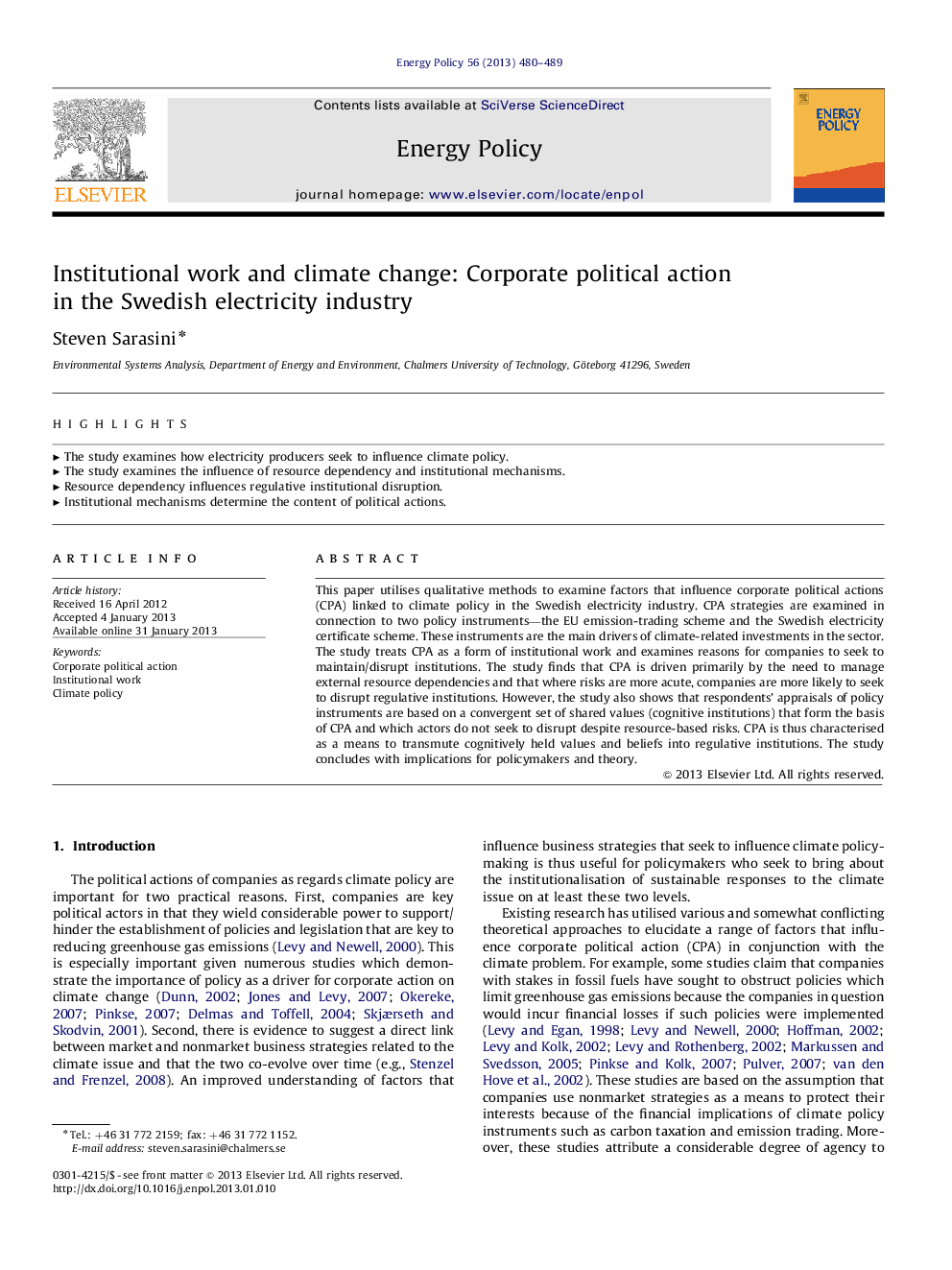| Article ID | Journal | Published Year | Pages | File Type |
|---|---|---|---|---|
| 994803 | Energy Policy | 2013 | 10 Pages |
This paper utilises qualitative methods to examine factors that influence corporate political actions (CPA) linked to climate policy in the Swedish electricity industry. CPA strategies are examined in connection to two policy instruments—the EU emission-trading scheme and the Swedish electricity certificate scheme. These instruments are the main drivers of climate-related investments in the sector. The study treats CPA as a form of institutional work and examines reasons for companies to seek to maintain/disrupt institutions. The study finds that CPA is driven primarily by the need to manage external resource dependencies and that where risks are more acute, companies are more likely to seek to disrupt regulative institutions. However, the study also shows that respondents’ appraisals of policy instruments are based on a convergent set of shared values (cognitive institutions) that form the basis of CPA and which actors do not seek to disrupt despite resource-based risks. CPA is thus characterised as a means to transmute cognitively held values and beliefs into regulative institutions. The study concludes with implications for policymakers and theory.
► The study examines how electricity producers seek to influence climate policy. ► The study examines the influence of resource dependency and institutional mechanisms. ► Resource dependency influences regulative institutional disruption. ► Institutional mechanisms determine the content of political actions.
